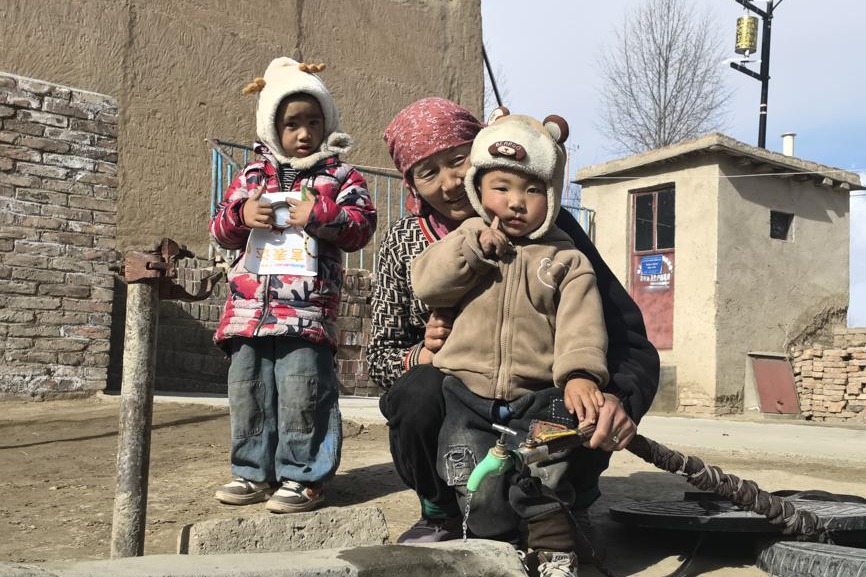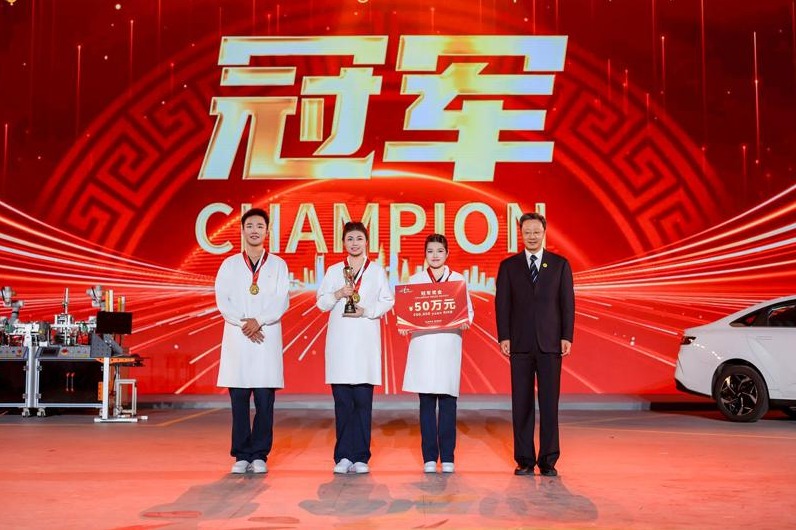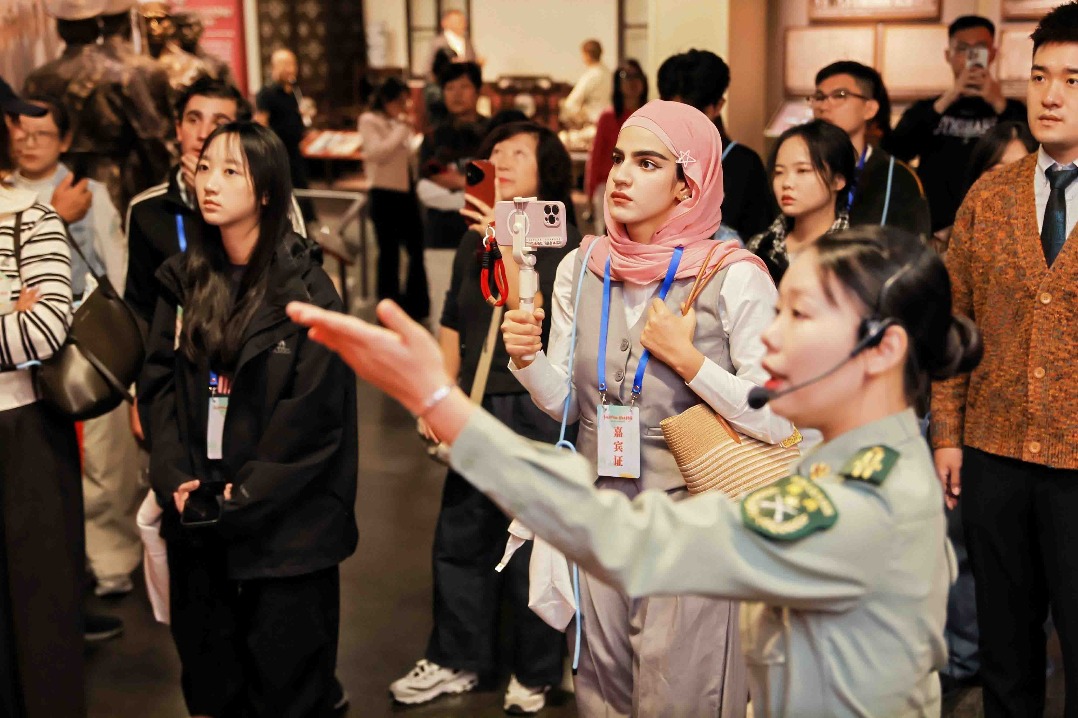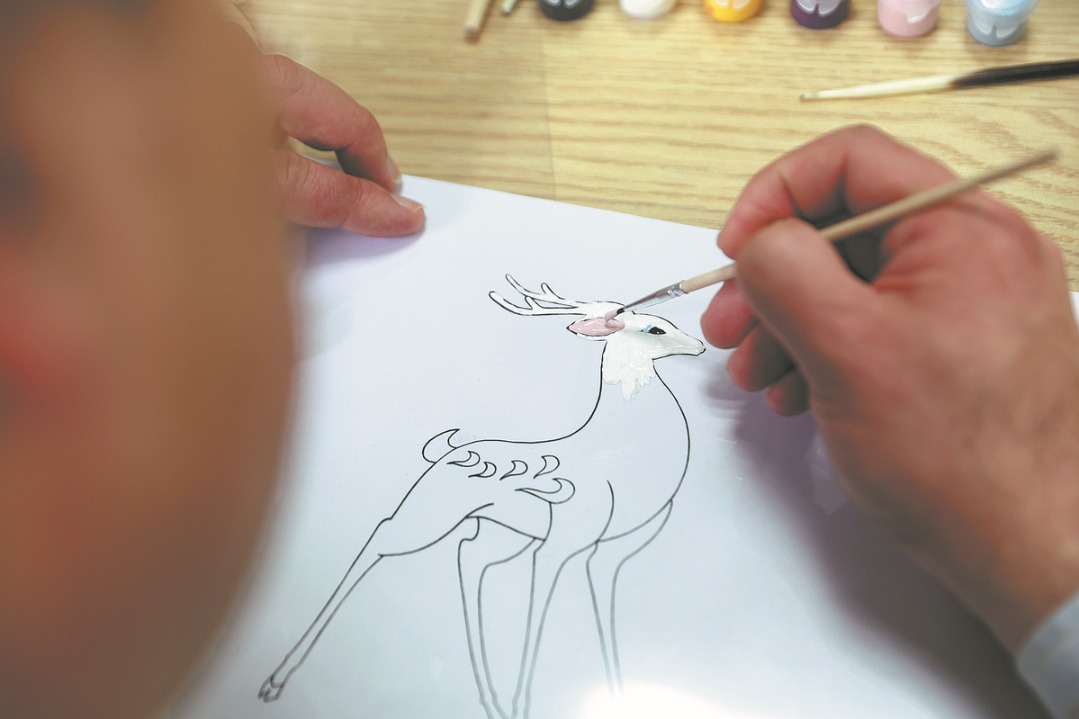Technical skills key to shaping intl growth

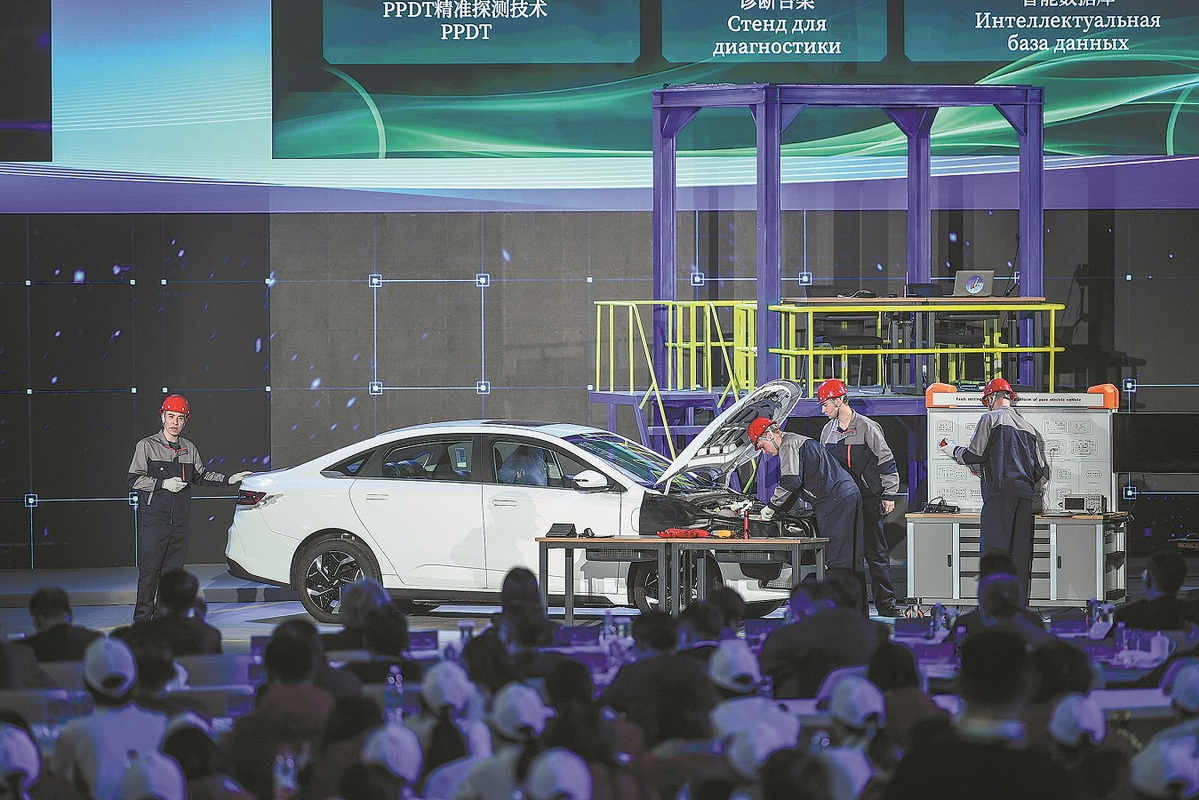
The 2025 World Vocational College Skills Competition has undergone a major upgrade, emerging as a global event that showcases how technical education is reshaping industries ranging from healthcare to manufacturing.
Attracting nearly 9,000 teams with 33,000 members from 76 countries, the event also featured four newly established overseas divisions in Southeast Asia, Central Asia, Africa, and Europe, signifying its transition from a domestic program into what organizers describe as an international platform.
According to the organizing committee, the expansion has also accelerated the global reach of China's vocational education standards, solutions and resources.
In a video speech delivered on Friday, Minister of Education Huai Jinpeng said the competition had evolved from a domestic contest into an "international hallmark," offering young people worldwide a platform to advance through skills and contribute to global development.
After several rounds of selection, six teams advanced to the championship finals held on Friday in Tianjin. China's Jinhua University of Vocational Technology won the top prize with an intelligent mechanical arm designed for electrocardiographs. The device was developed to speed up emergency procedures and support the early screening of diabetes-related complications in community clinics.
Liu Chaoqun, the team's faculty adviser, said they spent months debugging the device to ensure stable electrode contact for people of different physiques. It has already been used in grassroots health services in Jinhua, Zhejiang province, reaching more than 2,000 residents.
Projects from overseas teams also made a strong showing. East Kazakhstan Technical University secured third place with a new energy vehicle system developed using skills first learned at a Luban Workshop, China's international vocational training program.
Shaanxi Vocational Academy of Art drew strong praise for blending Qin Opera with virtual reality technology to engage young audiences. Youth groups from five countries experimented with traditional makeup and costumes through immersive demonstrations.
German vocational education expert Klaus-Juergen Brix, who served as a judge, said "the project exemplified how tradition and modernity can reinforce one another, enabling deeper collaboration between culture, education and industry."
Other judges said the broader range of entries reflected an evolution in craftsmanship. "In our time, we solved production challenges with a file in our hands," said judge Li Xiaobao. "Today's new artisans must think as well as make. Robotics and advanced technologies are becoming core skills."
To keep pace with global trends, the competition added an artificial intelligence track this year. One team from Zhejiang Polytechnic University of Mechanical and Electrical Engineering used AI to enable robots to detect production errors and adjust assembly actions autonomously, improving precision manufacturing.
"The AI track lets us turn classroom knowledge into real-world application," said a student from Jiangsu Tianyi High School.
Liu Yuanqing contributed to this story.
- Technical skills key to shaping intl growth
- National platforms launched to boost recycling efforts
- DNA study reveals East-West exchanges over 2,000 years ago
- Retired teachers revitalize higher education in Xinjiang
- Chinese scientists develop breakthrough method for aromatic amine applications
- Mobile judicial teams ensure justice for all

















